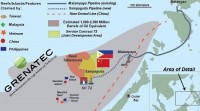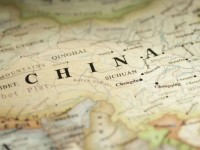Aug 05, 2015
Washington’s cozy-up with Japan’s military suggests the US has a short memory about its wartime experience, and Japan’s ultimate intentions should be re-examined.
Lucio Blanco Pitlo III, President of Philippine Association for Chinese Studies, and Research Fellow at Asia-Pacific Pathways to Progress Foundation
Aug 05, 2015
Without strict maritime law to monitor fishing activities in common waters, over exploitation and diplomatic wrangling can ensue. The Philippines and China can adopt informal mechanisms, which can even serve as the bedrock for more robust cooperation.
Dan Steinbock, Founder, Difference Group
Aug 04, 2015
The White House’s effort to hammer the Trans-Pacific Partnership (TPP) agreement in Maui failed. As time is running out for President Obama’s legacy achievement, both Washington and Beijing are reassessing their options.
Shen Dingli, Professor, Institute of International Studies, Fudan University
Aug 04, 2015
In the South China Sea dispute, the US position has been inconsistent with itself and with norms of international law, breeding misunderstanding and suspicion. The result has raised the political temperature in the region, and could lead to undesirable results for all parties.

Stewart Taggart, Founder & Principal, Grenatec
Jul 22, 2015
As the South China Sea’s most promising near-term developable gas field in the South China Sea, Sampaguita could offer a solution of cooperation, peace, and legitimacy to Chinese claims near the Philippines.
Vasilis Trigkas, Visiting Assistant Professor, Schwarzman College, Tsinghua University
Jul 16, 2015
The Lincoln Memorial in Washington D.C. carries deep symbolism, both in the U.S. political heritage, and classical Greek aesthetics. Vasilis Trigkas proposes that this monument be a site for President Xi and Obama to deliver an alternative narrative for China-U.S. relations.
Sajjad Ashraf, Former Adjunct Professor, National University of Singapore
Jul 14, 2015
The new AIIB reflects China’s opportunity to assist the developing world, but how China cooperates with India, and U.S. interests in the Asia Pacific, will determine the effectiveness of the new Bank.
Gong Ting, Research Fellow, China Institute of International Studies
Jul 14, 2015
The key legal framework for the China-initiated regional multilateral institution – the Asian Infrastructure Investment Bank (AIIB) – was inked by representatives of the bank’s 57 founding members in Beijing last Monday. For China and the U.S., the AIIB is not about win-lose. A win-win result can be achieved if both sides are more open-minded.

Jeffrey A. Bader, John C. Whitehead Senior Fellow, Brookings Institution
Jul 10, 2015
East Asia has avoided major military conflicts since the 1970’s. It is owing to the maturity and good sense of most of the states of the region, their emphasis on economic growth over settling scores, and the American alliances and security presence that have deterred military action and provided comfort to most peoples and states. But above all else, it is due to the reconciliation of the Asia-Pacific’s major powers, the United States and China.
Zha Daojiong, Professor, Peking University
Jul 06, 2015
The past two years witnessed the Chinese leadership enunciating a “Chinese Dream” visions for the nation and offering to share the prospects of prosperity and stability with the entire Asia Pacific region and beyond.
Back to Top

- China-US Focus builds trust and understanding between the U.S. and China through open dialogue among thought leaders.
- Our Offerings
- Topics
- Videos
- Podcasts
- Columnists
- Research Reports
- Focus Digest
- Stay Connected
-
Thanks for signing up!
- Get the latest stories from China-US Focus weekly.